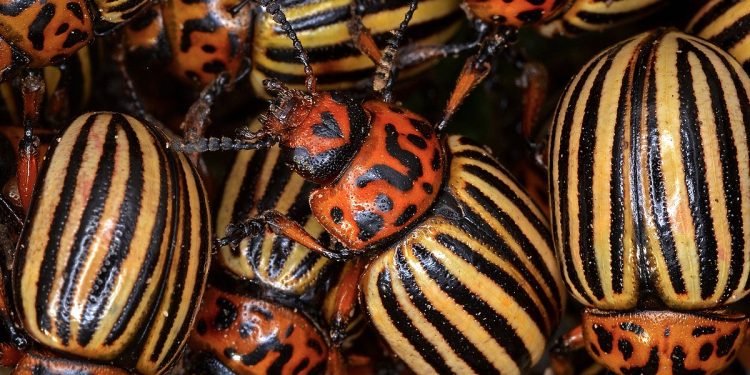#BattleAgainstTheBeetle #ColoradoPotatoBeetle #PestControl #RNATechnology #NaturalPredators #Ecosystem #Sustainability
The Colorado potato beetle, scientifically known as Leptinotarsa decemlineata, is a major pest of potato crops worldwide. The beetle is notorious for its ability to rapidly develop resistance to commonly used insecticides, making it a significant challenge for farmers and scientists alike.
In recent years, researchers have been working to develop new strategies to combat the beetle and minimize the damage it causes to potato crops. One approach involves the use of RNA interference (RNAi) technology, which targets specific genes in the beetle to disrupt its development and reproductive abilities.
Another promising strategy is the use of natural predators, such as parasitic wasps and fungi, to control beetle populations. These predators have shown great success in reducing beetle numbers and limiting the damage they cause to potato crops.
However, the development of new strategies is not without consequences. The use of RNAi technology and natural predators may have unintended effects on other organisms in the ecosystem, and the long-term sustainability of these strategies is still uncertain.
Ultimately, the battle against the Colorado potato beetle will require a multi-faceted approach that considers both short-term and long-term consequences. By combining innovative strategies with responsible stewardship of the environment, we can protect our potato crops and preserve the delicate balance of our ecosystems.







